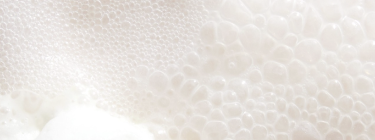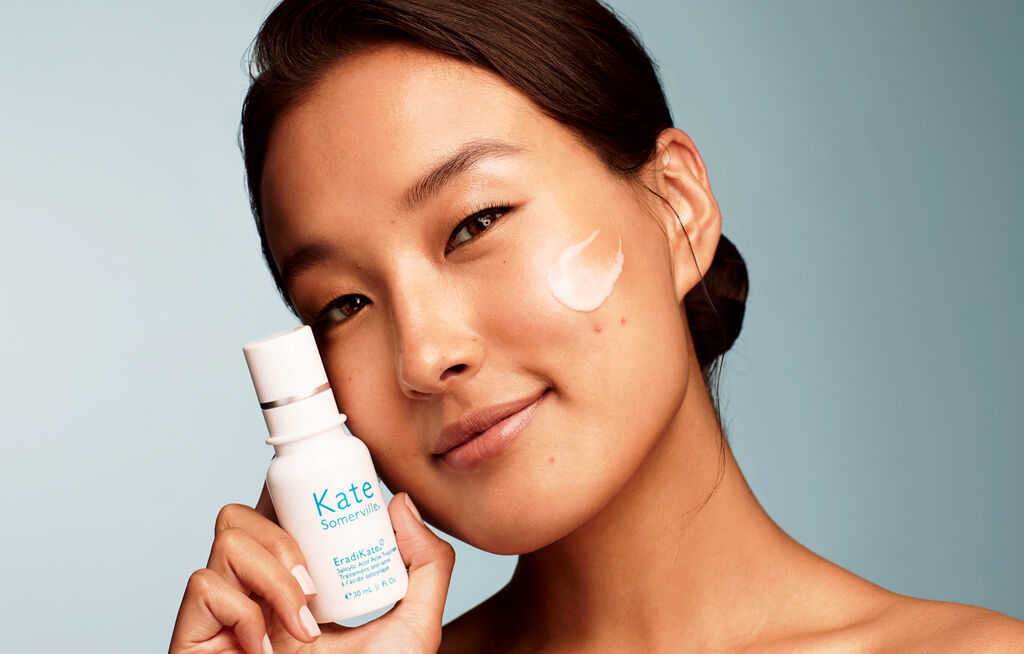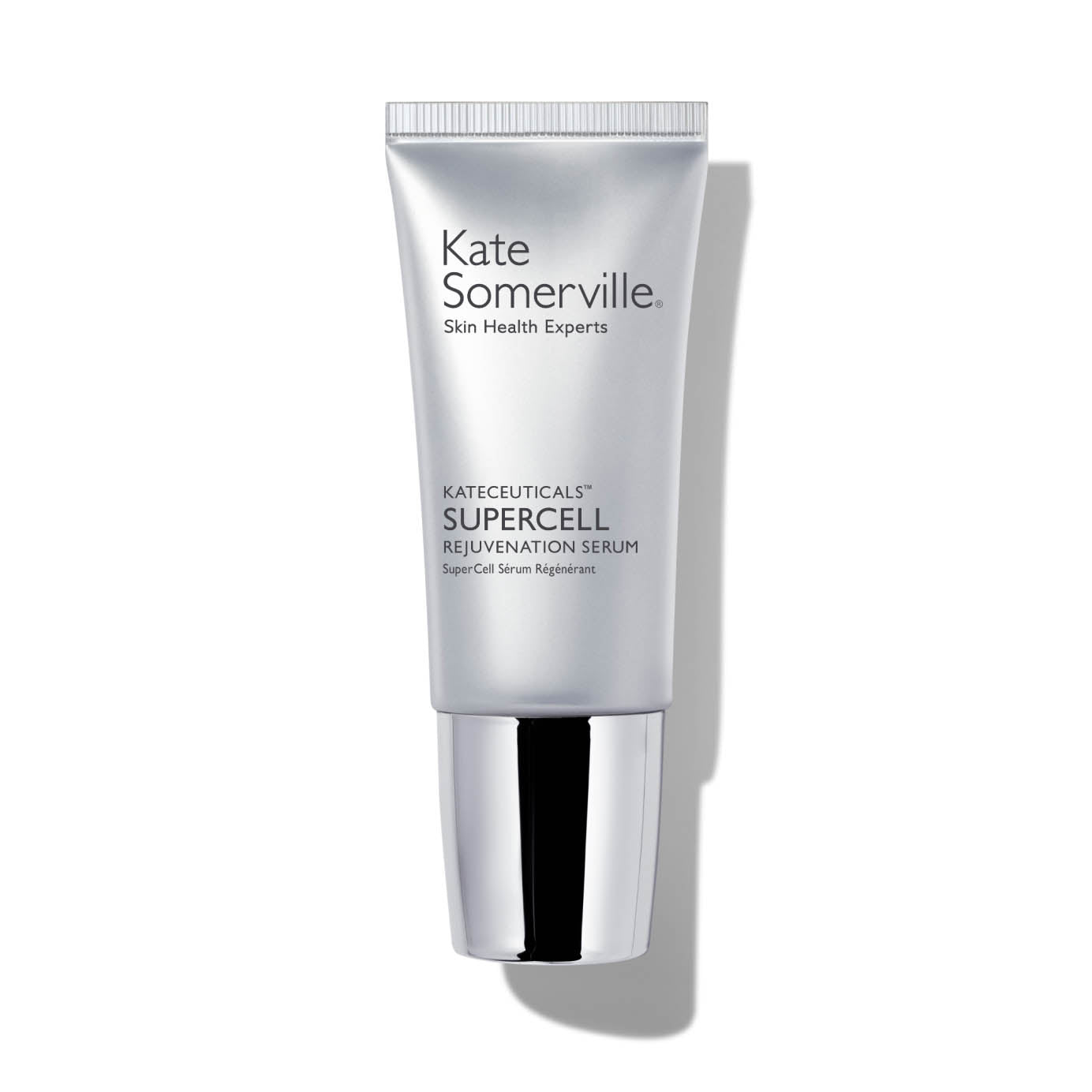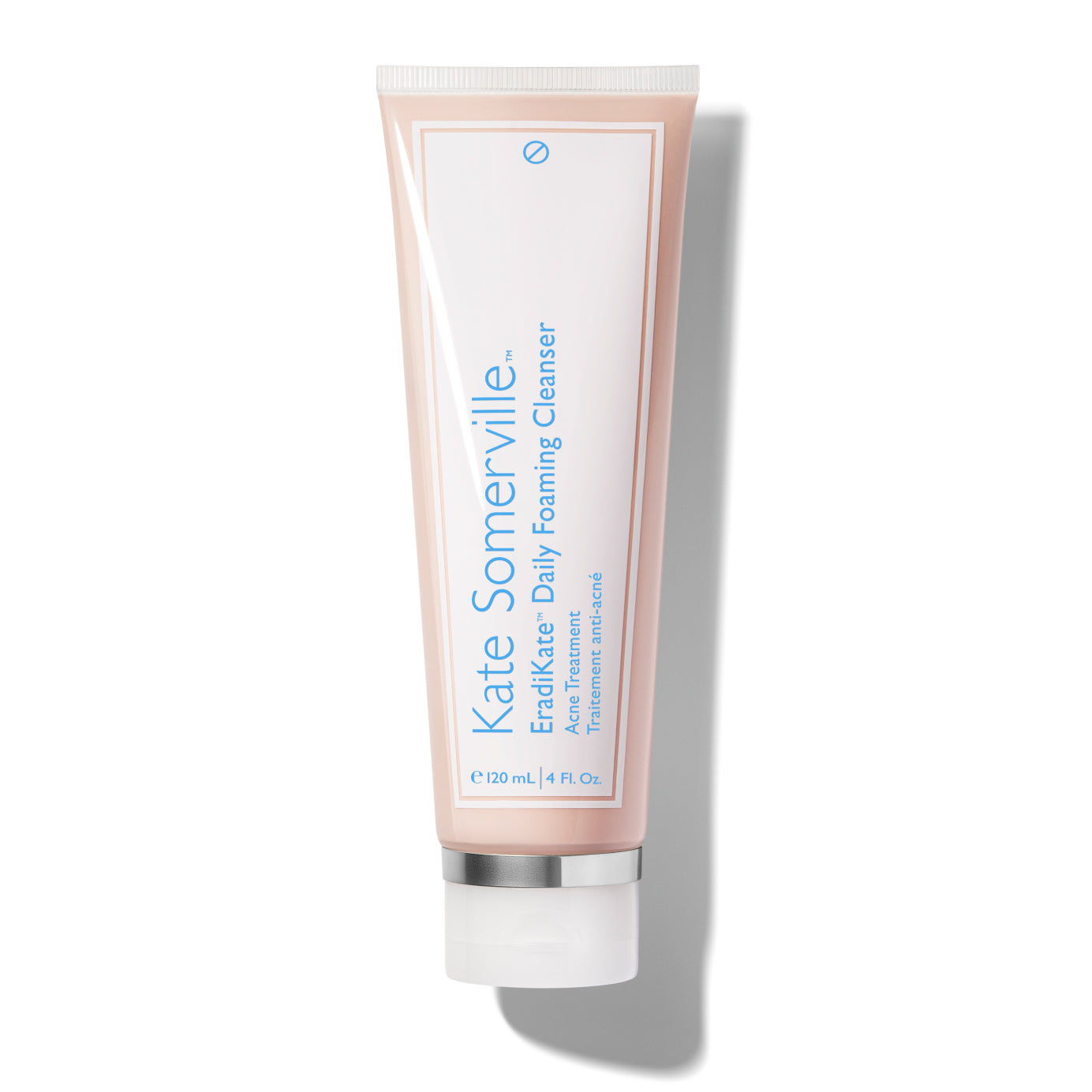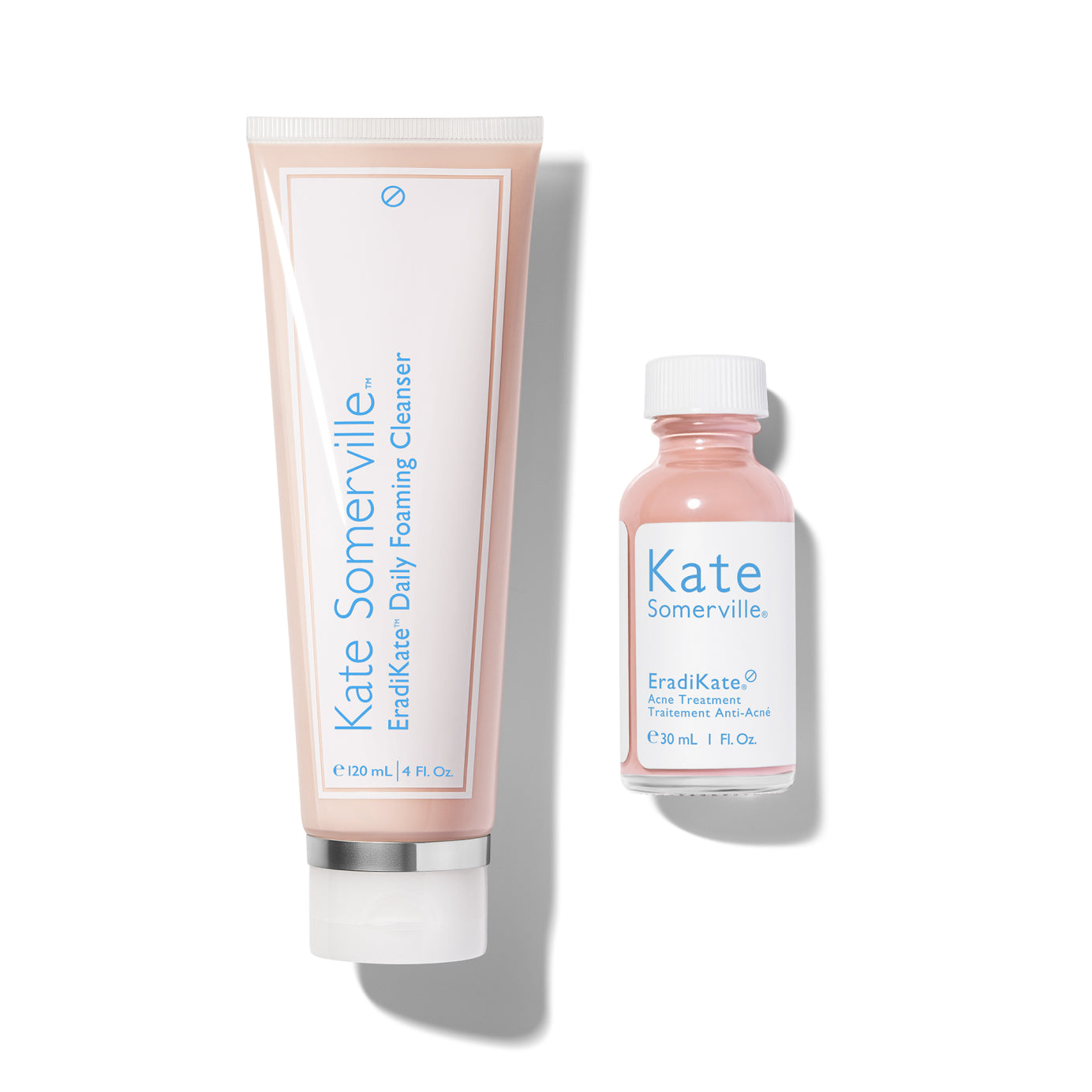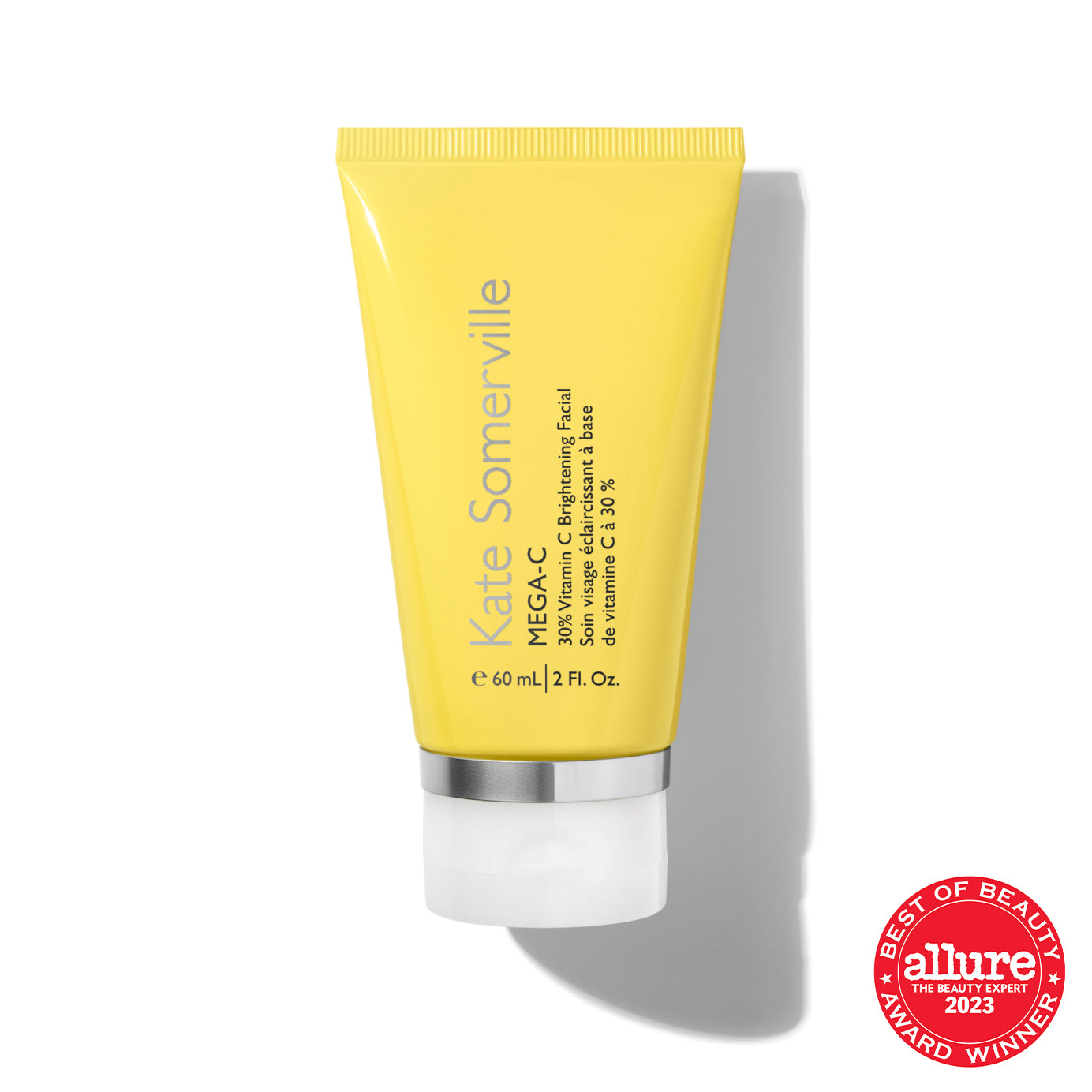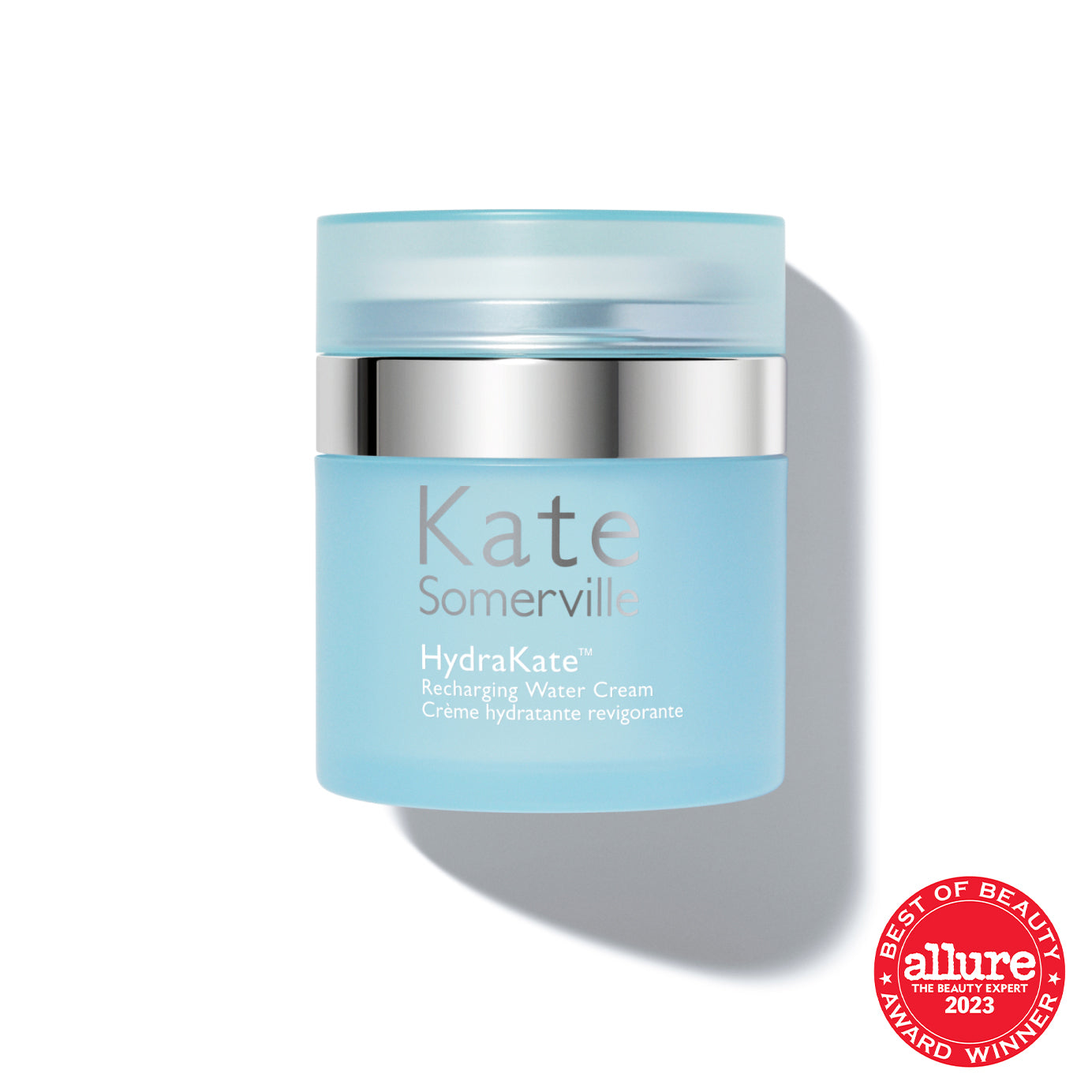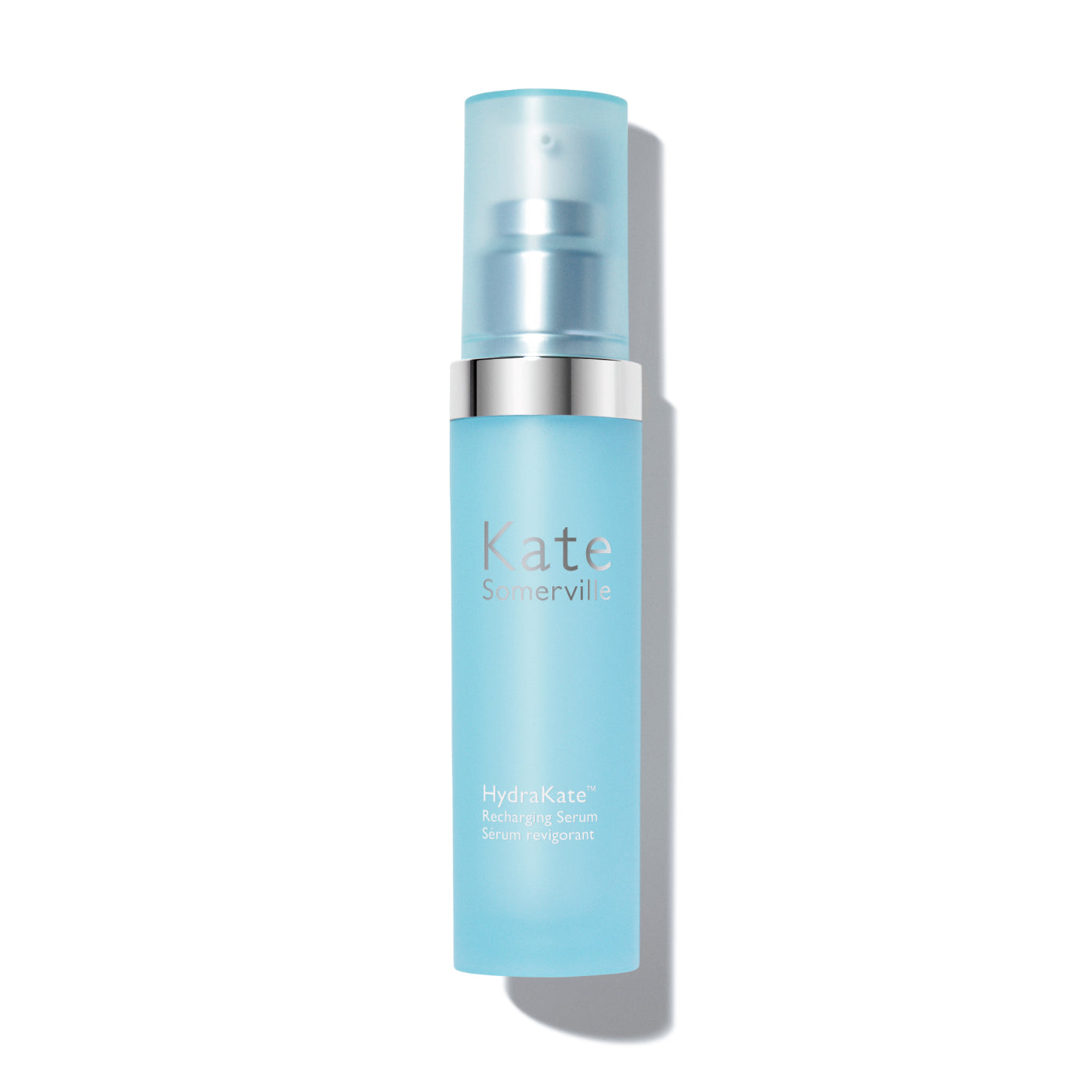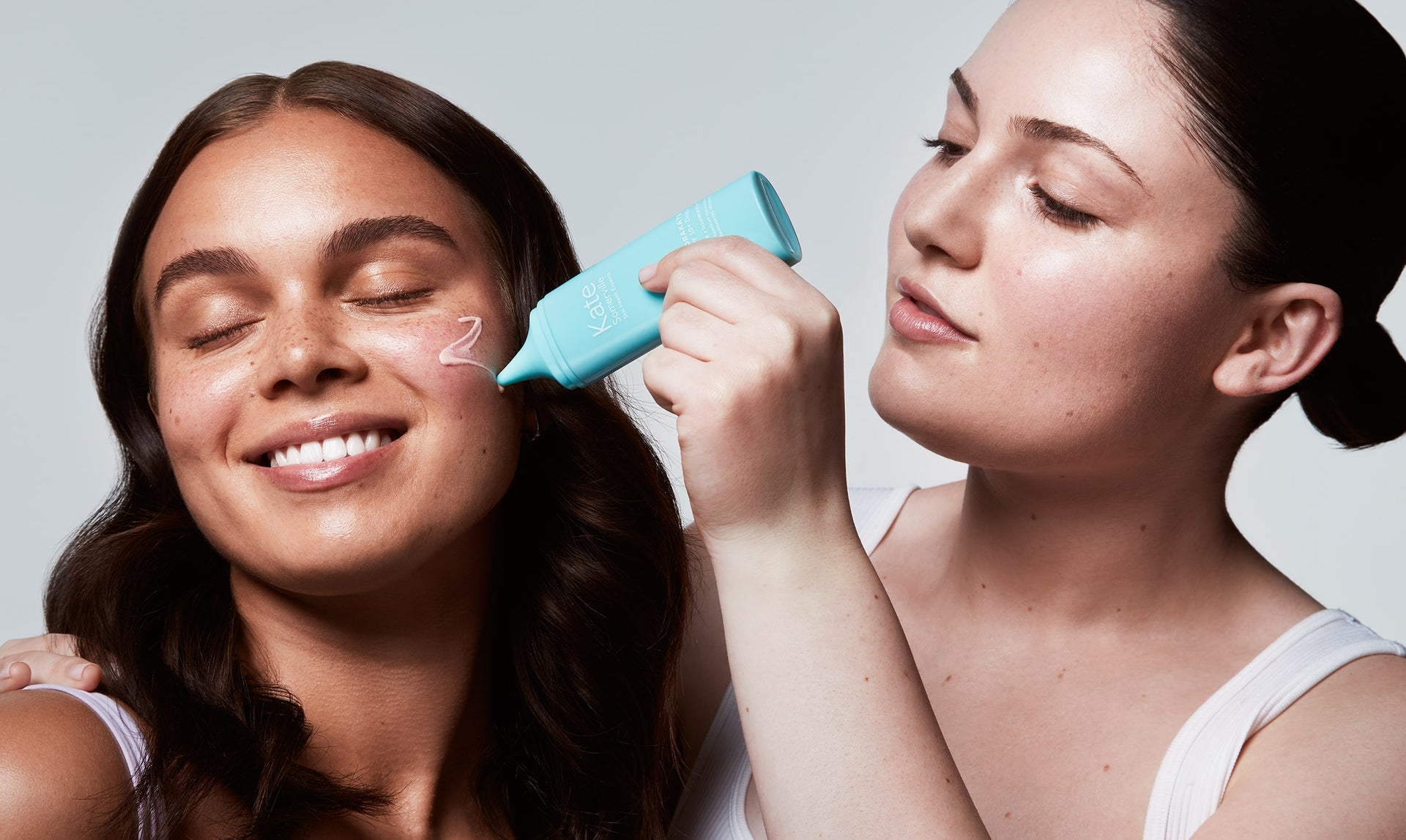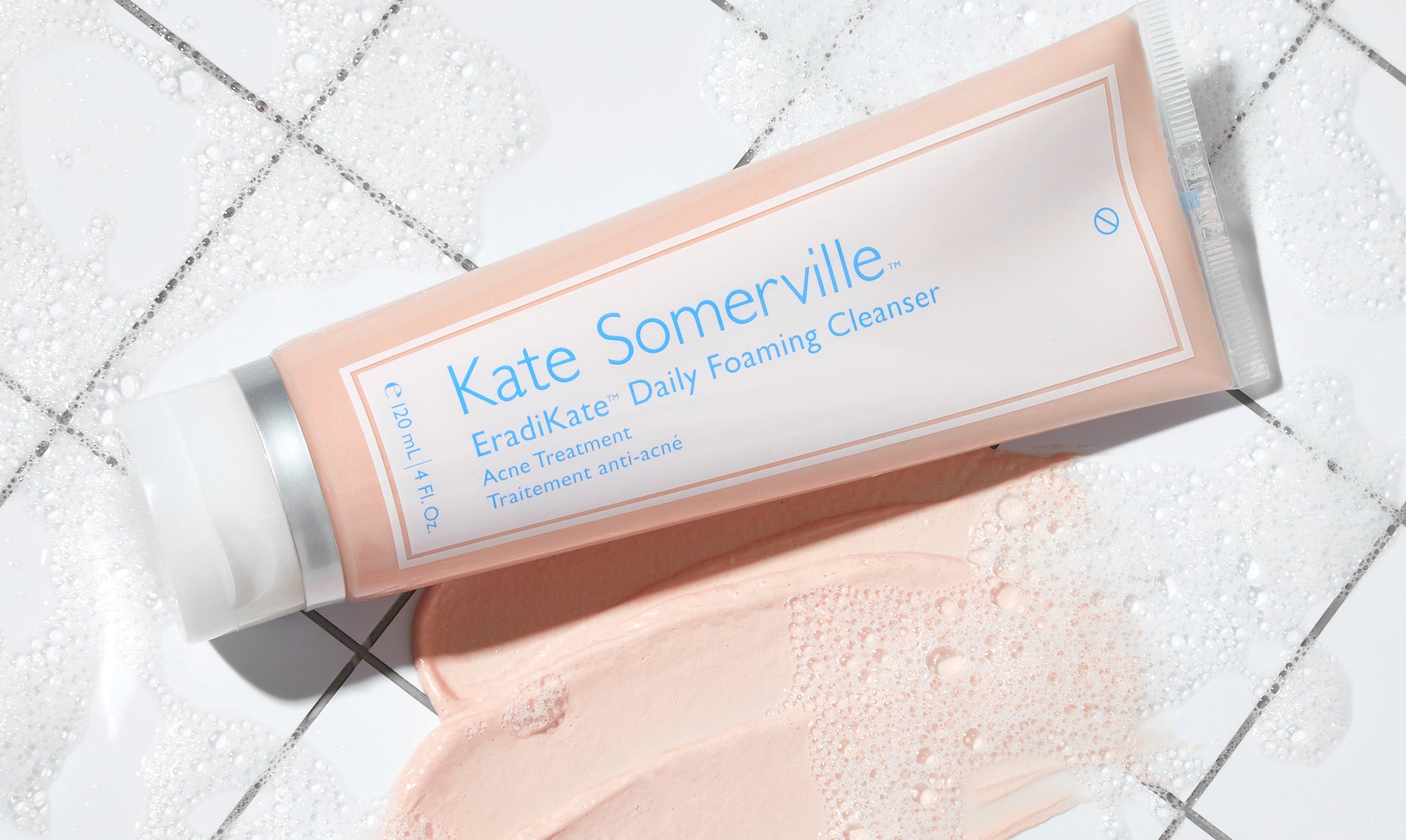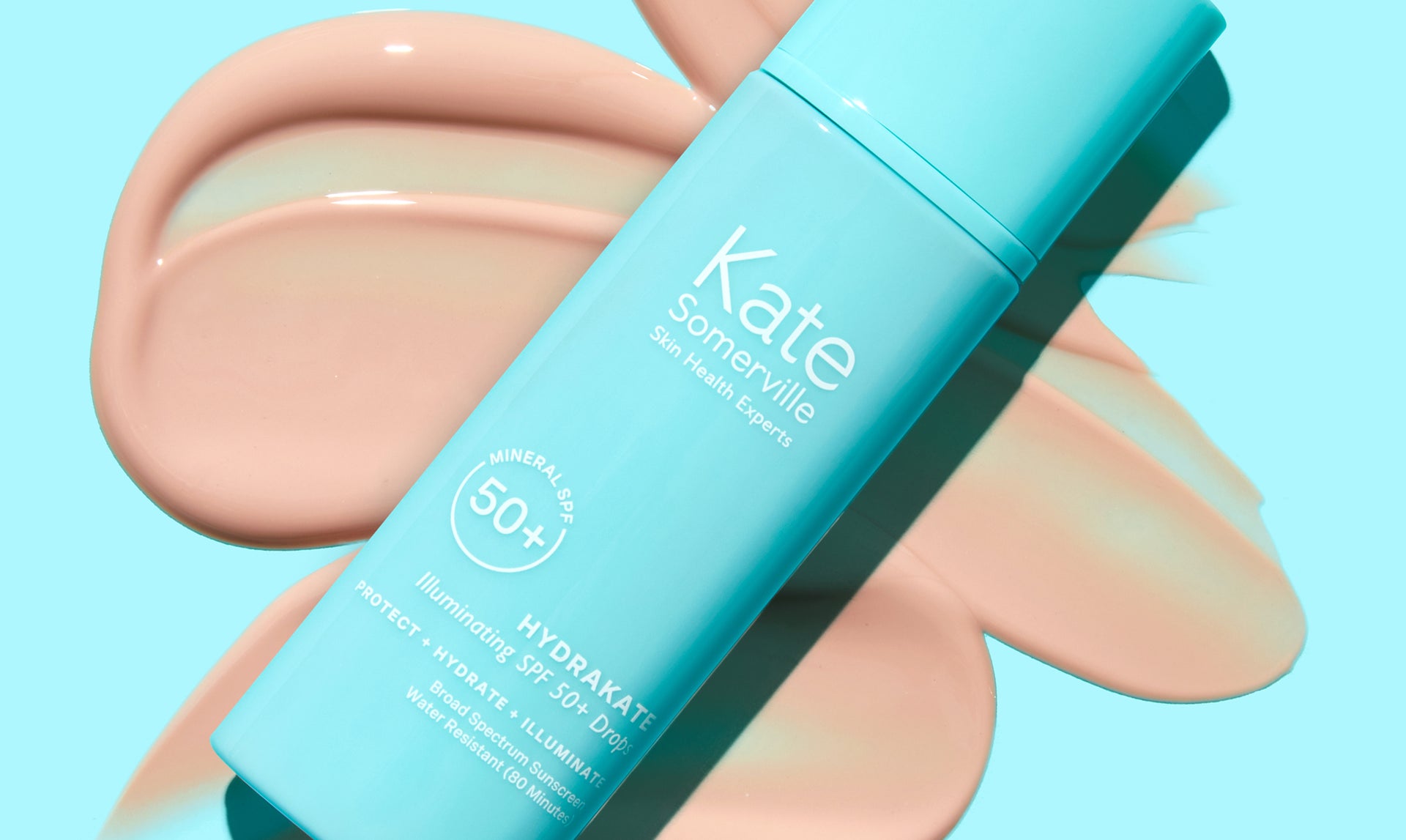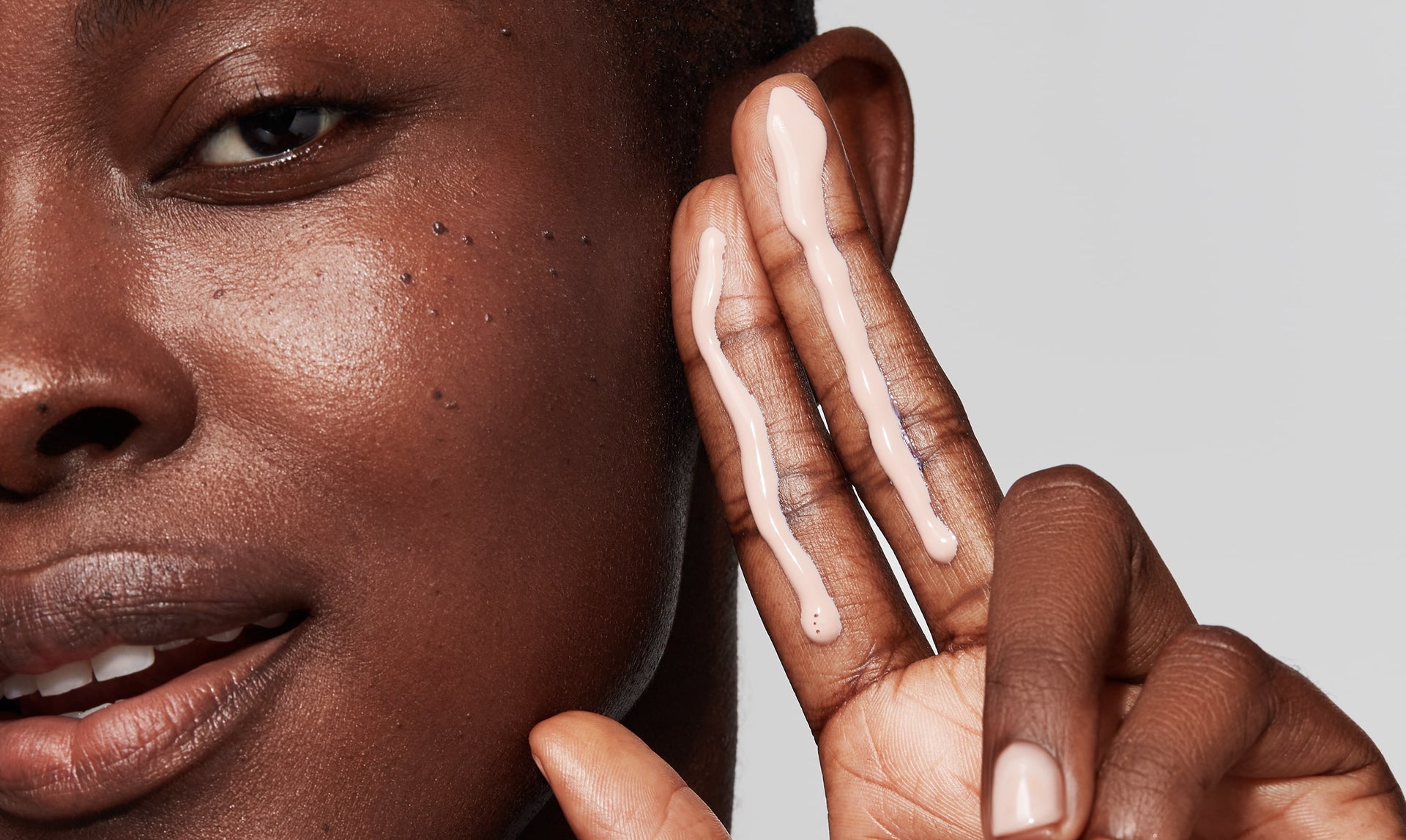Are you overwhelmed with the amount of acne-clearing skincare products on the market today? Don’t worry. You’re not alone. As Skin Health Experts, one of the most frequent questions we get asked at our clinic and online is, “What is the best product to treat acne?” While our answer can vary from person to person, two specific ingredients are especially beneficial and transformative when it comes to acne treatment products: Benzoyl Peroxide and Salicylic Acid. While both of these active ingredients can work wonders for skin irritation, benzoyl peroxide and salicylic acid products have their individual pros and cons. To help take the guesswork out of your skincare journey, we’ve created a rundown of these skincare ingredients. Keep reading for our comparison of benzoyl peroxide vs. salicylic acid for acne.
What is Benzoyl Peroxide?
So, what is benzoyl peroxide? As a common ingredient in acne-fighting skincare products, benzoyl peroxide works to eradicate bacteria effectively, the same bacteria that is responsible for causing clogged pores and breakouts [1]. Its soothing and comedolytic properties make it one of the most reliable ways to treat mild to moderate acne.
Now, you might ask, how does benzoyl peroxide work for acne? Oils, bacteria, and dead skin cells are all factors that lead to clogged pores and cause acne to form. By carrying more oxygen to the pores of your skin, benzoyl peroxide helps prevent and destroy any additional bacteria caused by these factors [2]. Because bacteria have a difficult time surviving in an oxygen-rich environment, benzoyl peroxide’s oxidizing properties make it highly effective among acne treatment products. In addition to these bacteria-cleansing properties, solutions with benzoyl peroxide also work to reduce inflammation and provide light exfoliation, minimizing the chance for clogged pores, dead skin cell buildup and inflammatory acne [3].
What is Salicylic Acid
Similar to what it sounds like, this ingredient is a type of beta-hydroxy acid credited for gently exfoliating the skin and working to unclog pores [2]. Unlike many other acne treatments out there, this ingredient commonly acts as a soothing, anti-inflammatory agent and has an incredibly calming effect towards skin irritation [4]. By helping to uproot dead skin cells, salicylic acid products work to exfoliate the skin and unclog pores naturally. Like benzoyl peroxide, it’s accessible over the counter and can be found in many acne-fighting products.
Which one is better for your skin?
Back to your question and the one we always get asked: “Is benzoyl peroxide or salicylic acid better?” Our honest answer is… both! Each of these blemish-banishing active ingredients works wonders when treating acne breakouts. Salicylic acid for acne works by gently exfoliating the skin and removing any dead skin cells that have the potential to clog pores. Benzoyl peroxide, on the other hand, helps eradicate bacteria at the source, preventing the acne from forming in the first place.
Because each ingredient targets different acne-causing factors, it may be beneficial to incorporate both in your regular skincare routine. As our founder, Kate, always says, “When treating acne, you want a multi-faceted approach that incorporates different active ingredients to target acne. Test different active ingredients on your skin and see what’s working.”
To start rotating in different products with different active ingredients, try using an acne-clearing face wash with salicylic acid in the morning, and a spot treatment featuring benzoyl peroxide at night. To ensure that you’re using products that work best for your skin, we recommend speaking with a skincare professional about your current skincare routine and skin type.
Choosing the Right Acne-Fighting Product
Benzoyl Peroxide
Now that you’ve studied up on these two active ingredients, you probably have a better understanding of which will work best for you. If you’re searching for a benzoyl peroxide-based acne treatment, Kate Somerville’s Anti Bac® Lotion might be the right product for you. Our customer-fave 5% benzoyl peroxide solution Anti Bac® works to target pores and help keep new acne breakouts from forming, while also clearing up existing acne. Additional ingredients like argan, saw palmetto, and sesame seed extracts help keep this acne treatment effective without causing over dryness.
Salicylic Acid
It’s no secret that salicylic acid benefits works wonders for the health and appearance of your skin. When picking out an acne-clearing product, it’s essential to look at the ingredients. While salicylic acid products can help improve acne alone, when combined with other nourishing ingredients like sulfur, the effectiveness of the product will surely receive a boost [4]. Kate Somerville’s Eradikate® Salicylic Acid Acne Treatment, contains 2% salicylic acid, the highest level allowed without a prescription. When combined with sodium PCA and sodium hyaluronate, this treatment helps to remove blemishes while also keeping your skin hydrated and glowing.
Blemish-free skin is something that we all strive for. Now that you understand the difference between – and benefits of - benzoyl peroxide vs. salicylic acid, it’s time to put both to the test. Because all skin types are different, one of these solutions may work great while the other might hardly work at all which is why you’ll want to identify your skin type to make sure you choose the best ingredient(s) and product(s) for you. For a comprehensive guide to fighting breakouts, try one of our skin care kits formulated to treat your skin type and top skin concerns. When testing out a new acne-clearing product, it’s essential to allow time for each to work. We recommend using each product for at least four weeks before determining its efficiency. If, after four weeks, you’re not convinced by the effectiveness of the product, it may be time to change things up or speak with your dermatologist about acne medications for a more powerful solution.
Sources:
